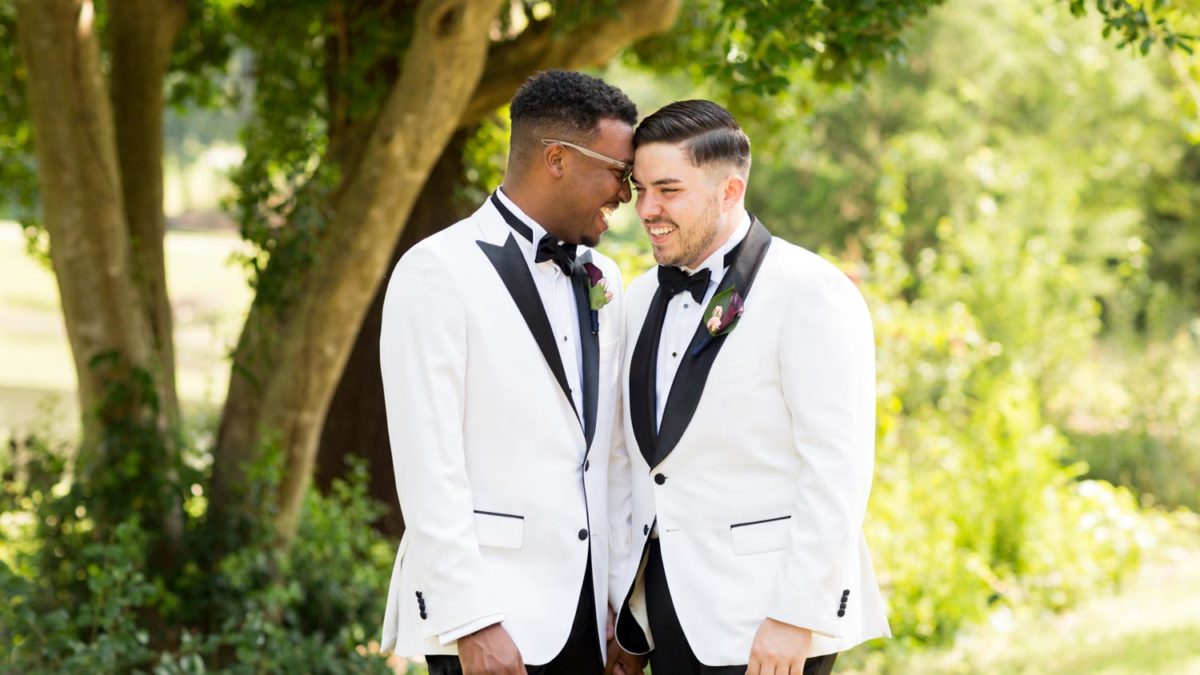Justices suggest marriage equality will be on the chopping block as the Senate aims to confirm Amy Coney Barrett
Originally published by The 19th
Five years after the Supreme Court made marriage equality the law of the land with Obergefell v. Hodges, two conservative justices are calling that ruling into question, perhaps previewing the court’s agenda if Republicans succeed in confirming Amy Coney Barrett.
In declining to hear an appeal from Kim Davis, a former Kentucky clerk who turned away a same-sex couple seeking a marriage license, Justices Clarence Thomas and Samuel Alito suggested that marriage equality should be overturned. The justices argued that the court decided a matter that should have been left to state legislatures and restricted religious freedoms.
“Obergefell enables courts and governments to brand religious adherents who believe that marriage is between one man and one woman as bigots, making their religious liberty concerns that much easier to dismiss,” Thomas added.
The statement is an invitation to bring cases that would strip LGBTQ+ couples of the right to marry, according to LGBTQ+ legal experts.
“So much for precedent and judicial restraint,” tweeted former Democratic presidential candidate Pete Buttigieg. “Two justices now openly call for an end to marriage equality—knowing reinforcements are on the way.”
Two justices now openly call for an end to marriage equality—knowing reinforcements are on the way.—Pete Buttigieg
Camilla Taylor, a Lambda Legal attorney who fought the Obergefell case that made marriage equality legal nationwide, says she is “absolutely” concerned about the fate of the law as the Senate prepares to confirm Judge Amy Coney Barrett.
“Marriage equality is one of the top issues targeted by the very wealthy far-right activists that we have battled all along,” Taylor told The 19th.
Taylor said LGBTQ+ legal advocates had long hoped that the court would uphold its recent opinions as a matter of protecting the court’s legitimacy. Now, she believes that all bets are off, and, as a result, all LGBTQ+ rights are up for grabs.
“It is hard to trust that the court will treat our lives, our cases, in a manner that respects basic humanity,” she said.
Barrett, Trump’s pick to replace the late Justice Ruth Bader Ginsburg, has been painted as a foe of LGBTQ+ equality. She has given lectures to extreme anti-LGBTQ+ group Alliance Defending Freedom, which the Southern Poverty Law Center has designated as a hate group. Twenty-seven LGBTQ+ organizations opposed her confirmation to the Seventh Circuit Court of Appeals in 2017.
In a 2016 lecture at Jacksonville University, Barrett said it would “strain” the text of Title IX to allow transgender people to use public restrooms that match their genders, categorizing trans women as “males.”
“People will feel passionately on either side about whether physiological males who identify as females should be permitted in bathrooms, especially where there are young girls present,” Barrett said.
But despite Barrett’s record, some feel that some basic LGBTQ+ rights are safe. James Esseks, director of the ACLU’s LGBT & HIV Project, does not expect the court to overturn marriage equality outright.
“That said, there are definitely some on the court who would overturn it,” Esseks said. “But look, the freedom to marry is something that has become a part of American culture.”
What he anticipates are wide carve-outs for people of faith that substantially undermine the institution of marriage for LGBTQ+ people.
Alphonso David, president of the Human Rights Campaign, has a name for those marriages.
“From eliminating hospital visitation rights and medical decision-making in religiously affiliated medical centers to granting businesses a license to discriminate against LGBTQ couples, ‘skim-milk marriage’ would have a devastating effect on our community’s ability to live freely and openly,” he said in a statement.
Article republished with permission from the 19th.
Photo by Jessica Hunt, Tavion + Andrew: A Greenville, South Carolina, summer LGBTQ+ wedding with rose petal exit
































